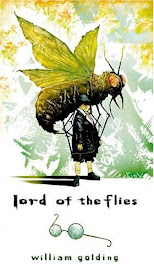- Wealtheow and Grendel's mother live in an era of absolute male domination. Women like them, no matter how noble or, on the contrary, depraved, are born to be the sacrifices of male chauvinism. Wealtheow, queen of the Scyldings, the noblest among all women, entered the story with the following description: "adorned with gold, that proud woman greeted the men in the hall, offered the cup" (606-670). Rather than depicting her inner qualities, the author chose to just superficially describe how beautiful she looks with her jewelries and how well she serves her husband - this is a neglect of human characters. Another obvious evidence for women's low social status is the nameless Grendel's mother - she does not even have a name throughout the poem! Women, at that period of time, are gorgeous creatures to entertain men or docile wives to serve their husbands. If a woman is neither gorgeous nor docile, she will be despite and alienated like Grendel's mother.
- Grendel's mother is a devilish monster. As a mourner of her only offspring's death, her heart is filled with hatred and vengeance. However, Wealtheow, the beautiful and noble queen of Scyldings, in this case, is a contrary to Grendel's mother. Wealtheow is not only graceful, but thankful for everything that was given by God. She praises the heroes while Grendel's mother fights and kills them.
Wednesday, September 30, 2009
Beowulf - Essential #2
1. Discuss the role of women in Beowulf. How do Wealtheow and Grendel's mother compare and contrast in their roles?
Friday, September 25, 2009
Beowulf - Essential #1
1. What are the social obligations of a hero?
- The social obligations of a hero are mainly associated with two things: the loyalty to their lineage and the honor to protect their people from fiends. This epic poem has extensive descriptions of the royal lineages of the Danes, the Swedes, and the Geats, which emphasizes the importance of royal birth - people of nobility are born to be noble. Therefore, as a kind of noblesse oblige, heroes like Beowulf have to be the kind of person they are expected to be - fearless warriors who are willing to fight for their people. In order to fulfill the heroic destiny, a hero is obliged to "expect neither comfort nor change. He will be damned forever. Joy shall be his who, when he dies, may stand before the Lord, seek peace in the embrace of our Father" (185-188).
- Although Beowulf is admired by almost everyone around him, he is not yet awared of his deification process. It is true that people adore him and respect him because "he was the strongest man alive, princely and powerful"; even "wise men admired his spirit of adventure" (197-122) - he is being deified. However, none of these praises come from the mouth of Beowulf, all he wants to do is to "overcome the fiend" (275) "with most honorable intentions" (265). However, we can see the hidden pride and overconfidence through his words; therefore, it is almost an certainty that Beowulf will be awared of his deification process sooner of later. The time when he begin to realize that he is gradually being deified, would also be the time when his pride grows and ambition increases.
Subscribe to:
Posts (Atom)











